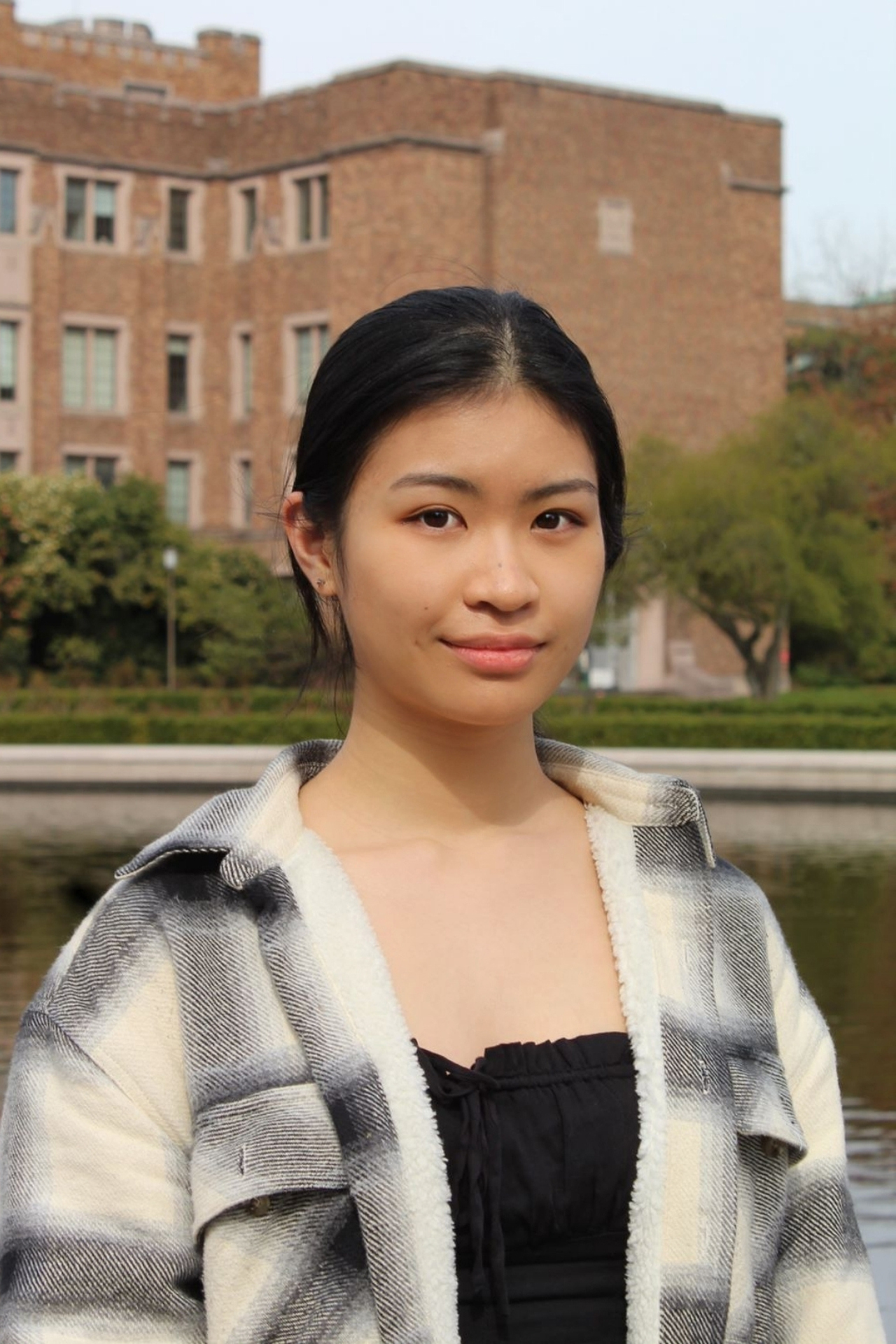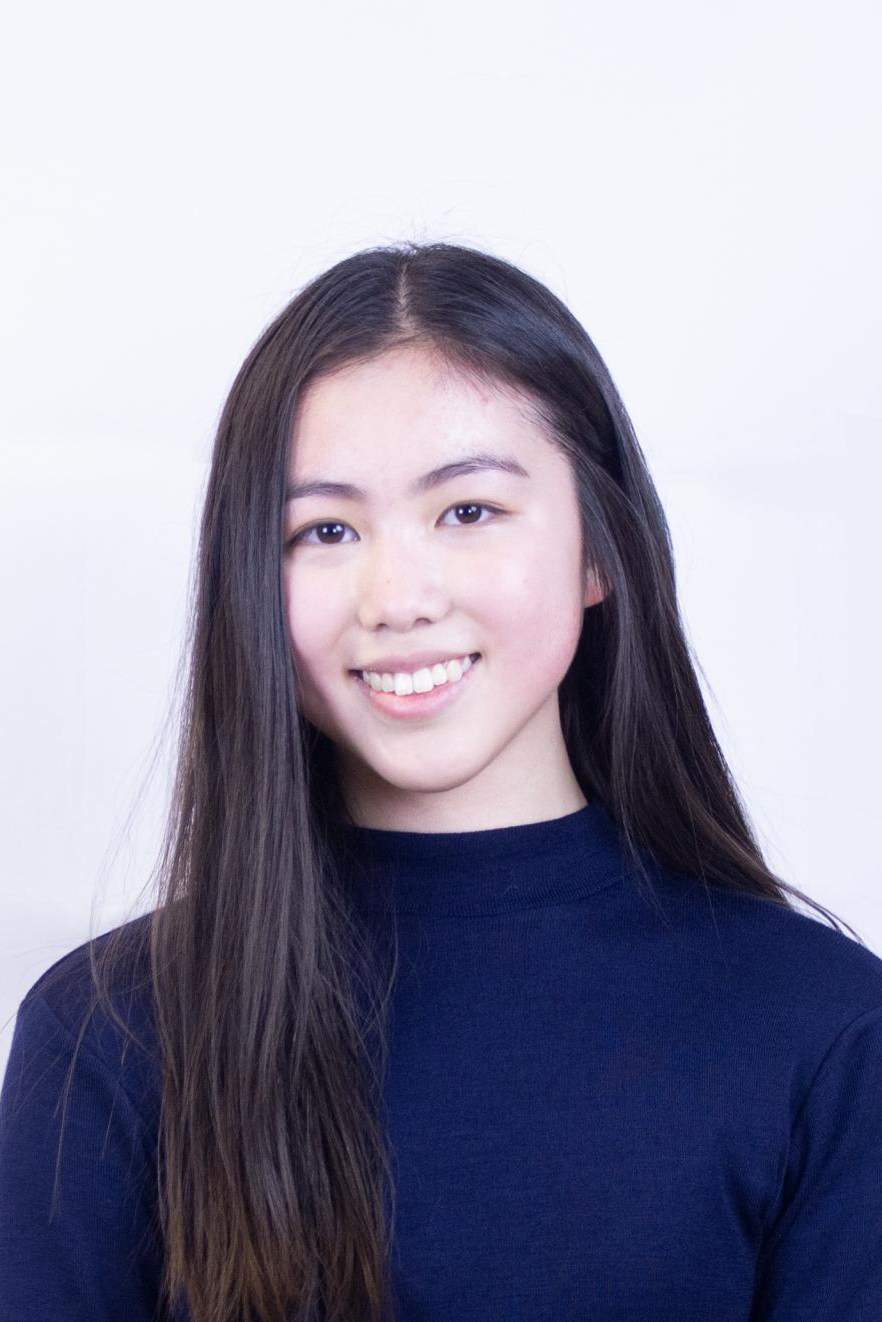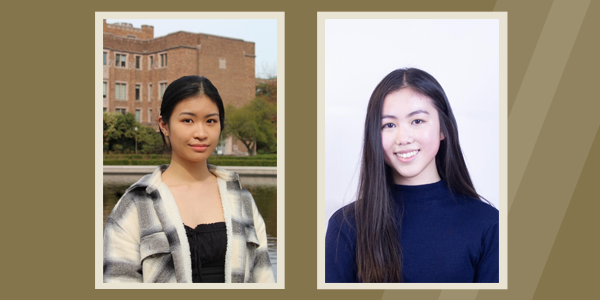UW Bioengineering undergraduate students Fang-Hua (Flora) Hu, and Rachel Shi were honored with 2022 Population Health Recognition Awards for their efforts in addressing human health, environmental resilience, and social and economic equity. The awards program is a partnership of the UW Population Health Initiative and the Undergraduate Research Symposium. A leadership panel from the Population Health Initiative selected Fang-Hua’s and Rachel’s work from more than 70 submissions.
Read on to learn more about Fang-Hua and Rachel and their winning projects.
 Fang-Hua (Flora) Hu
Fang-Hua (Flora) Hu
Sophomore Fang-Hua, who is also majoring in philosophy, focused on producing in vitro models for breast cancer with human induced pluripotent stem cell (iPSC) derived organoids. Her focus is to address the inequities in breast cancer research that skews toward women of European descent. In her work in Assistant Professor Julie Mathieu’s lab at UW’s Institute for Stem Cell and Regenerative Medicine, she studied relevant signaling pathways at each step of development to see how they are deregulated in breast cancer. In her application for the award, Fang-Hua wrote, “A diverse background in clinical testing is important to not increase health disparities. My project concerns the overlap of human health and social equity. Genome editing can be done on iPSC and drug screening can be done on the differentiated organoids. iPSCs can be derived from a diverse population of individuals and in differentiating them in vitro, we can model the difference in how breast cancer mutations affect people.”
In addition to the Population Health Recognition award, Fang-Hua’s other honors include the Robinson Center For Young Scholars Paradise Scholarship and the Mary Gates Research Scholarship. She is an active member of the UW BioE Justice, Equity, Diversity and Inclusion committee (JEDI).
 Rachel Shi
Rachel Shi
Rachel Shi, a graduating senior who is minoring in applied mathematics and will be a BioE master’s student next year, was recognized for her work in developing a portable dialysis device. Through her research in Professor of Chemical Engineering and Bioengineering Buddy Ratner’s Biomaterials Group, Rachel hopes to alleviate many of the socioeconomic barriers that dialysis patients currently face. In her award application, she wrote that “current home dialysis remedies are associated with racial and income disparities because of large equipment size, costs and maintenance. My research objectives heavily integrate engineering strategies and the healthcare field by opening a new avenue of patient treatment that enables greater independence and self-directed care.” Rachel has solicited the input of experts in nephrology who are knowledgeable about patient experiences. She is also working with insurance companies and has forged business partnerships to ensure that the device is functional as well as financially and geographically accessible.
Rachel was a Robinson Center for Young Scholars Early Entrance Program student and received the Levinson Emerging Scholars Award. Other recognition includes the Mary Gates Research Scholarship, the Chinese Institute of Engineers APA Scholarship and the Professor Allan S. Hoffman Endowed Scholarship .She is also involved with UW Bioengineers without Borders and volunteers with Kaiser Permanente.


